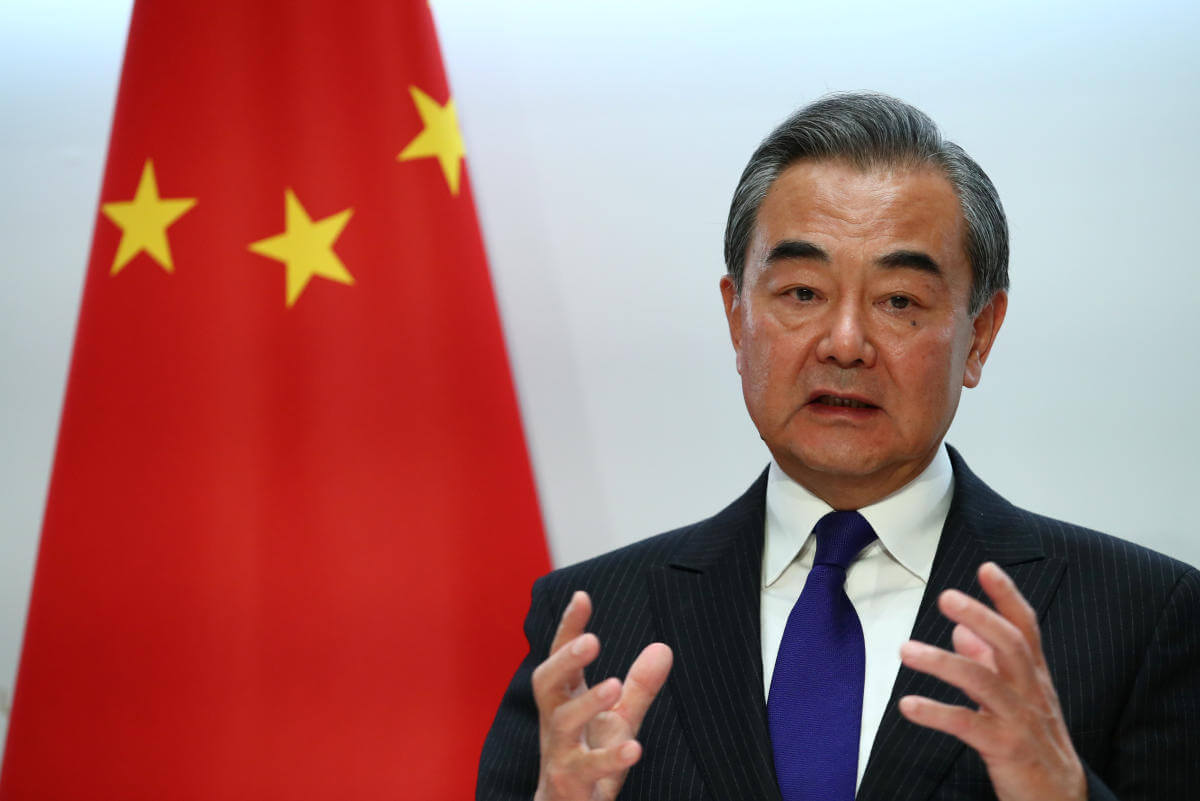China is looking to pass legislation that would outlaw “treason, secession, sedition, and subversion” in Hong Kong, and has received the backing of the Special Administrative Region’s (SAR) Chief Executive, Carrie Lam.
The proposed law, which is yet to receive the approval of China’s National People’s Congress, is driven in part by a desire to “improve” Hong Kong’s national security, after a serious of often violent protests over the last few years. Chinese Foreign Minister Wang Yi said that the law is necessary to guard against increasing “foreign meddling”, which China argues has infringed upon its national security. Thus, China wishes to strengthen the “legal system”, the “rule of law”, and enforcement mechanisms to give itself greater control over the former British colony.
In accordance with this, the “draft decision” says, “When needed, relevant national security organs of the Central People’s Government will set up agencies in Hong Kong to fulfil relevant duties to safeguard national security in accordance with the law.” This essentially paves the way for China to set up law enforcement agencies which run parallel to–and supersede–the city’s existing security forces. In essence, this strips yet another layer of autonomy from Hong Kong.
In response, thousands of protestors congregated in the Causeway Bay and Wan Chai districts, decrying a law that they feel takes away their freedoms and silences opposition to Chinese control. In order to disperse crowds, police fired tear gas and water cannon at protestors, and claim that over 180 people have been arrested.
The proposed legislation has drawn international condemnation, with US Secretary of State Mike Pompeo saying that it subverts the “will of the people” and represents a “death knell” for Hong Kong’s “high degree of autonomy, democratic institutions, and civil liberties”. His sentiments were echoed in a joint statement by UK Foreign Secretary Dominic Raab, Australian Foreign Minister Marise Payne, and Canadian Foreign Minister François-Philippe Champagne, who expressed their “deep concern” at the proposed new security law. Raab also referenced the “legally binding Joint Declaration, signed by the China and the UK”, which stipulates that Hong Kong must continue to enjoy a “high degree of autonomy”, and “rights and freedoms, including those of the person, of the press, of assembly, of association and others”.
Taiwan, too, has pledged it support for the supporters, with President Tsai Ing-wen saying that she would provide the “necessary assistance”. In the recent past, Taiwan has welcomed a handful of pro-democracy protestors who escaped from Hong Kong. China claims Taiwan as its own territory, and has thus labeled Tsai as a “separatists”, while Tsai says Taiwan is an independent country called the Republic of China. Thus, the latest statements by Tsai are sure to increase tensions with China, particularly given that, only last week, she publicly sought “peace, parity, democracy, and dialogue” between Taiwan and China. Nevertheless, she has remained steadfast in her rejection of China’s “one country, two systems” model, which Hong Kong currently enjoys.
It will also be interesting to see how the US responds, given that the State Department postponed its annual report on Hong Kong’s autonomy until after the Chinese government’s annual legislative section. Now that this law has been put forth, Pompeo has hinted that the US may revoke or at least reconsider Hong Kong’s preferential trading privileges and special status, which may lead to the imposition of sanctions.
Unsurprisingly, China has issued s stern rebuke of any and all international criticism and concern, with its Foreign Minister saying that “no external interference will be tolerated”. In fact, given that China has used the pretext that international interference caused the unrest that necessitated this legislation, further criticism by international actors may only hasten China’s resolve.
Nevertheless, Wang Yi also sought to downplay tensions, assuring that the “one country, two systems” principle would be upheld in Hong Kong, and that the “high degree of autonomy in Hong Kong” would not ‘be affected’. He added, “It does not affect the rights and freedoms enjoyed by Hong Kong residents. And it does not affect the legitimate rights and interests of foreign investors in Hong Kong.”
This point was repeated by Carrie Lam, who said that the proposed new law would not infringe upon the principle of “Hong Kong people administering Hong Kong”, adding that it is simply the “best system to ensure prosperity and stability”. Lam contends that it “won’t affect the capitalist system and rule of law” or “foreign investors’ interests that are legally protected in Hong Kong”. However, considering the fluidity of the situation and China’s penchant for revoking old laws and introducing new ones, it is questionable whether Lam can provide such assurances.
China Rebukes International Criticism of Proposed New Security Law in Hong Kong
Foreign Minister Wang Yi said “no external interference will be tolerated”.
May 25, 2020

IMAGE SOURCE: XINHUA
